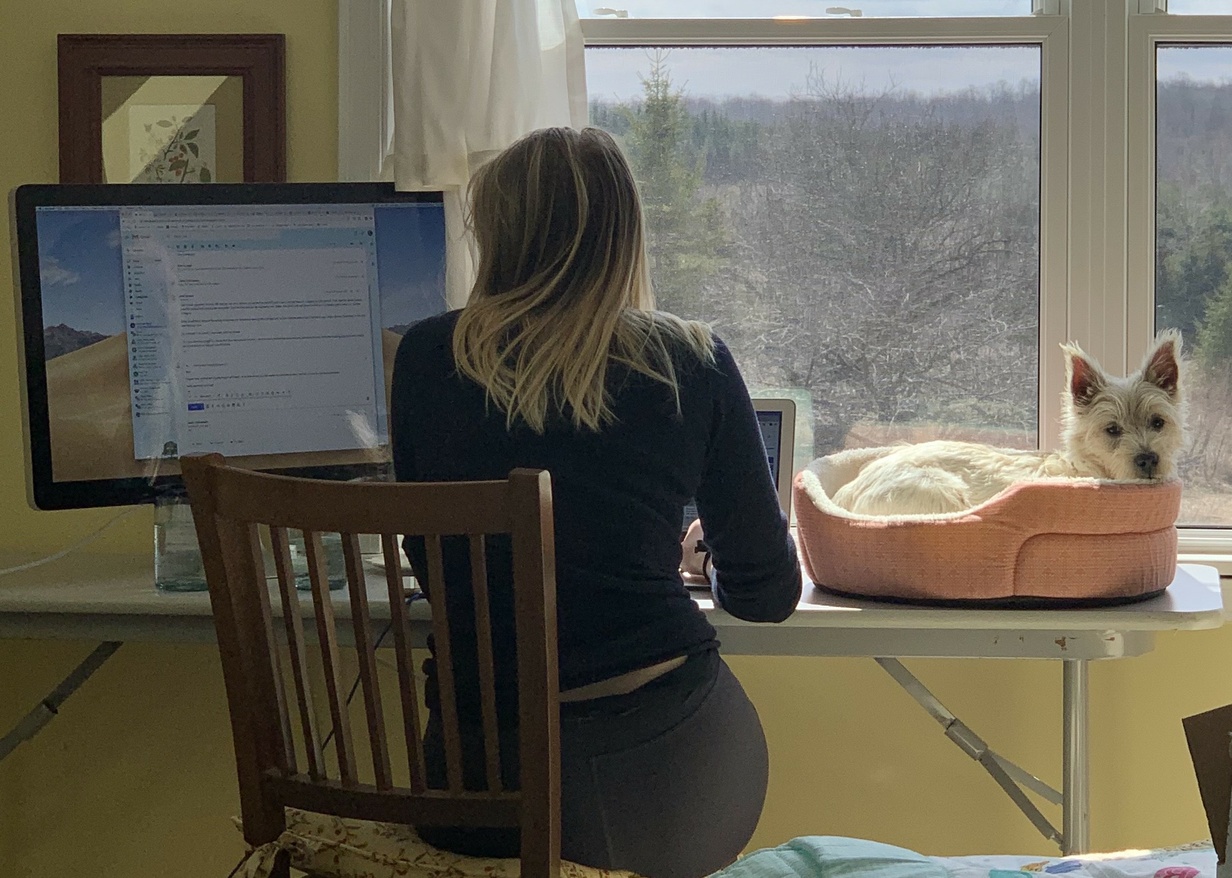
As Professionals Leave Big Cities, Is Traverse City Their Destination?
By Ross Boissoneau | July 11, 2020
You hear it everywhere: Americans are leaving big cities in droves, seeking lower prices, safety, and calm in suburbs or small towns. According to a Harris poll, four in ten urban dwellers said the COVID-19 crisis has prompted them to consider moving to a less crowded place. A Pew Research poll says one in five adults have either moved or someone they know did so because of COVID-19. So…are they coming to Traverse City?
Jeff Hoisington did. He left New York City, relocating to a family cottage in Northport. He had moved to the Big Apple after graduating from college with a degree in film and audio production, figuring there would be lots of work.
That was then, and this – northern Michigan – is now. “Things didn’t work out (in film/audio) and I…got into the bar and restaurant industry. It was what I had to do to pay the rent. It turned into the thing I want to do.”
But not where he wanted to do it. Hoisington says he was always planning to move back to his home state, but the coronavirus and subsequent stay-home orders hastened his return. Throw in the fact his brother’s family had already moved back to this area, and Hoisington is looking for work and permanent housing in the Traverse City area.
He’s not alone. In the Harris poll taken in late April, 39 percent of the 2,050 U.S. adults surveyed said they were considering such a move.
“We’ve been hearing from a ton of people. This is absolutely happening,” says Warren Call, CEO of Traverse Connect, the regional economic development organization. “Staff get a text saying, ‘How do I get there? Help me.’”
In response, the organization is rolling out a new concept called Creative Coast. It includes a creative directory, website, social media, a podcast and other means to reach out to young professionals, families, and others who might consider moving to the area. It will highlight the region’s professional, cultural and natural attractions and opportunities, including a job portal.
Call says employers have been struggling to fill jobs. Add to that the sudden shift to telecommuting with the stay-home orders, and he thinks the entire region will become more visible to all ages – not just retirees or the well-heeled. “I think we will see a shift to more working age, more looking at this area because of COVID. I want the world to know,” he says.
Lily Christiansen (pictured above) knows. When the pandemic hit, the Glen Lake graduate and her fiancé (also a Michigan native) were visiting the area looking at wedding venues. They never left. “In Chicago, we had a 900-square-foot apartment. Staying here, there’s space.”
Is their move permanent? Perhaps. “My fiancé is in real estate and works with people across the U.S. I’m in marketing. It’s made us realize you don’t need to be in a metro area to have a successful career,” she says. She has since gotten out of her lease in Chicago and put the contents of her apartment in storage.
Charles Cochran is another who came north from the Windy City and ended up staying. Raised in the Chicago suburbs, he and his family often vacationed in the area, and his parents bought some land and started a farm in the Maple City area 15 years ago. “We came up for a long weekend March 14,” he says.
That’s when things changed. “My company said, ‘Don’t take public transportation. Work remotely and stay at home.” He’d only brought a couple pairs of pants with him, and has had to supplement his wardrobe online.
He and his girlfriend are both in the insurance industry. Though they’re both working from here now, he says it would be difficult to make a permanent move just yet. “She can work anywhere. I need to develop a book of business specific to Michigan,” he says, which he estimates could take a decade. But the longer he’s here, the closer the future gets. “I don’t think I’ll be going into the office before the first of the year. We will ride it out up here. We love it up here.”
Casey Cowell isn’t surprised. The entrepreneur and investor has long championed the area, co-founding the Front Street Irregulars and the merchant bank Cochran, Cowell & Gruman, among other efforts. “As an area, we’ve been on a focused path to create high-paying, year-round jobs. I think the quality of life is being more fully appreciated,” he says, pointing to the relative lack of congestion as well as arts, culture, and natural beauty.
He also sees the relatively new group of individuals in leadership positions around the region working together to position the region and publicize its assets, including people such as Call, Northwestern Michigan College President Nick Nissley, and Downtown Development Authority CEO Jean Derenzy.
Area realtors have picked up on the trend.
“There are definitely COVID-related changes happening,” says Brad Platt, owner-broker at Century 21 Northland. He says a number of his agents had already been working with clients looking at the area. That includes families now looking to relocate to the area, as well as those who were considering vacation/retirement homes that may become permanent more quickly than previously anticipated. “A lot said the clients they were working with over the past year were on the fence about relocating or buying a second home. With the pandemic and the atmosphere around the protests, they got off the fence,” he says.
Large metropolitan areas won’t be abandoned, but with no end to the pandemic in sight, it’s likely the trend to the burbs – and northern Michigan – will continue.
“Big cities are still going to be great places,” says Call. “But the cost and value, the jobs (including remote working), more space…more will look at this area…it’s not going to stop.”
Comment






